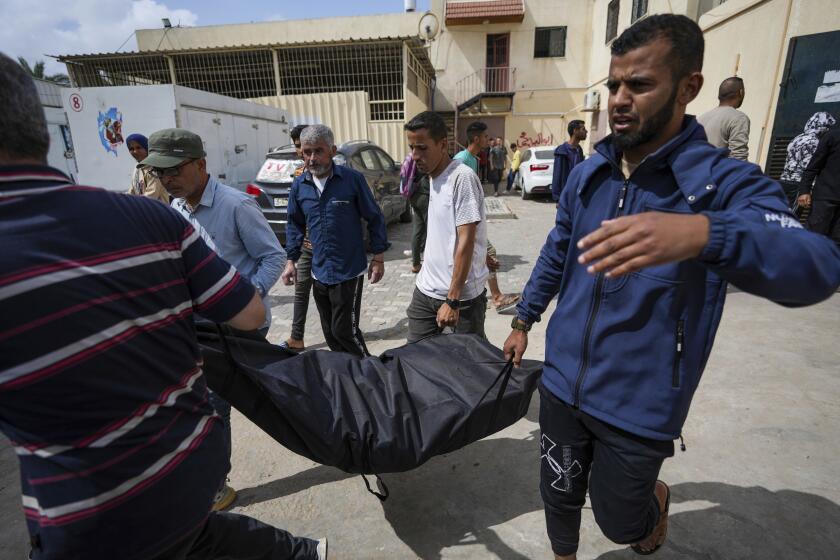Pakistan to trim large Cabinet
Pakistan’s ruling party Friday authorized a sweeping overhaul of the country’s Cabinet that probably will mean a marked reduction in the number of ministers, a response to critics who have called the bloated government’s size an impediment to economic reform.
International lenders and opposition leaders have been keeping up pressure on the ruling Pakistan People’s Party to slash the size of Prime Minister Yousuf Raza Gilani’s Cabinet, a bulky roster of 52 ministers and advisors.
World lending groups such as the International Monetary Fund provide billions of dollars in loans that help keep the country’s fragile economy from collapsing, but they are now demanding a tax overhaul and spending cuts in return for their financial assistance.
The government’s lax performance in providing relief to millions of people devastated by floods last year has further eroded the ruling party’s popularity, giving opposition leaders newfound leverage to push for major changes.
The ruling party’s executive committee, chaired by President Asif Ali Zardari, met in Islamabad, the capital, and gave Gilani the go-ahead to dissolve the Cabinet and form a smaller version after consulting with allied parties.
Party leaders did not say how large the new Cabinet would be, but they have talked of initially eliminating 10 ministries and cutting eight more in the summer.
Federal ministers formally submitted their resignations Friday, party general secretary Jahangir Badar said, but they will stay on until Gilani announces the formation of the new Cabinet, probably within the next couple of days.
The Cabinet’s size is a symptom of the ruling party’s diminishing popularity, which has forced party leaders to cobble together a coalition government with the help of rival political groups. As payback for their participation, those parties demanded Cabinet seats.
Other demands by international lending institutions have yet to be met. The government has been urged to generate new tax revenue through measures that, though unpopular, would signal Pakistan’s willingness to help itself. However, a massive wave of opposition to a proposal for a sales tax and an increase in fuel prices prompted Gilani to rescind those initiatives.
Lahore political analyst Hasan Askari Rizvi called the party’s announcement “a small step, but in the right direction.”
“Ultimately, the IMF would like new taxation to be imposed,” Rizvi said. “But the government thinks if it can make these kinds of gestures, perhaps they will get support from other political parties for the general sales tax. It shows the government is serious about reducing expenditures.”
Party leaders still face the difficult task of keeping coalition parties happy by ensuring that they have enough representation on a smaller Cabinet.
“How will the coalition partners be satisfied with a lesser amount of seats available for them?” Rizvi said. “This will be a big challenge for the PPP.”
More to Read
Start your day right
Sign up for Essential California for news, features and recommendations from the L.A. Times and beyond in your inbox six days a week.
You may occasionally receive promotional content from the Los Angeles Times.






